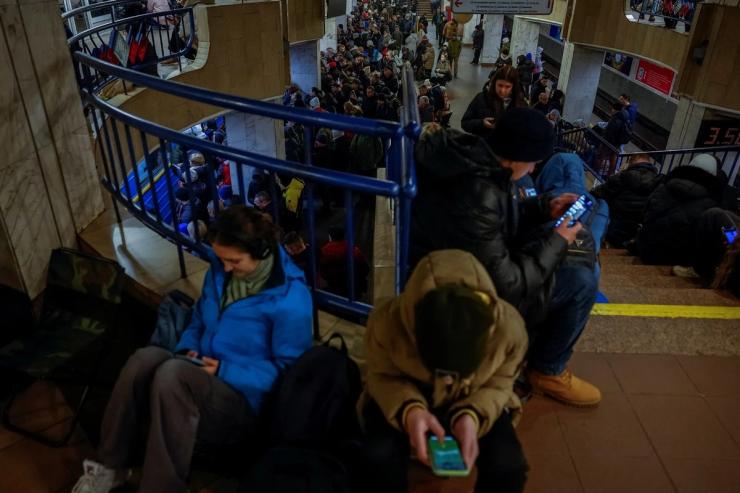The News
Ukraine declared a nationwide alert as Russia hammered the country’s energy infrastructure, marking the latest escalation in the war.
Russian President Vladimir Putin said the attack — which lasted several hours as missiles and drones struck Ukraine, leaving more than a million people without power — was in response to Kyiv’s use of Western long-range missiles to strike Russia. Putin also threatened to target “decision-making centers” in Kyiv with a new missile.
Ukraine, meanwhile, is trying to boost its domestic weapons industry. European nations are increasingly financing contracts for Kyiv’s arms manufacturers, and Ukraine is reducing its reliance on China-made drones, fearing Beijing’s ties to Moscow, according to the Counteroffensive, a Ukraine-focused outlet.
SIGNALS
Both sides try to secure victories before Trump’s inauguration
Analysts have attributed the intensifying conflict — with Moscow’s forces making rapid advances and increasing bombardments of Ukrainian territory — to both sides’ attempting to secure victories, or at least maximize their advantage, ahead of US President-elect Donald Trump’s return to the White House: Trump favors a rapid peace deal, which could freeze any territorial gains by either party. Keith Kellogg, who Trump named as Special Envoy to Ukraine and Russia, will likely push for “tough negotiations” to end the conflict, the BBC wrote, but he’s seen as moderate compared to other frontrunners who had been more critical of continuing to arm Kyiv. “Thank god,” one European official told Semafor after Kellogg’s nomination. “Not the worst option at all.”
Ukraine’s morale — and the EU’s will — is diminishing
The escalation comes as morale in Ukraine is starting to wear out: A Gallup survey found that more than half of Ukrainians want a negotiated end to the war “as soon as possible,” up from 27% in 2023, while 38% are in favor of prolonging the fight. “These days, we want peace, not victory,” a Ukrainian resident told Al Jazeera. Europe’s political will to support Kyiv is also starting to falter, Russian-born American historian Anastasia Edel wrote in Foreign Policy, with leaders like German Chancellor Olaf Scholz speaking to Putin about ending the conflict. However, any deal will result in a “bad peace,” Edel argued, almost certainly entailing territorial concessions to Putin, and “will amount to Ukraine’s—and the West’s—capitulation to Russia.”
Russian ruble is falling over fears of US sanctions
Russia’s economy has long been under pressure owing to a combination of sanctions, record defense spending, and growing inflation. The ruble hit its lowest level against the US dollar since March 2022, driven by US sanctions against banks that had been critical in maintaining international trade, the Financial Times reported. A weak ruble boosts Russia’s export revenues, putting more money into government coffers, but also adds pressure to the country’s runaway inflation, The Wall Street Journal reported.



